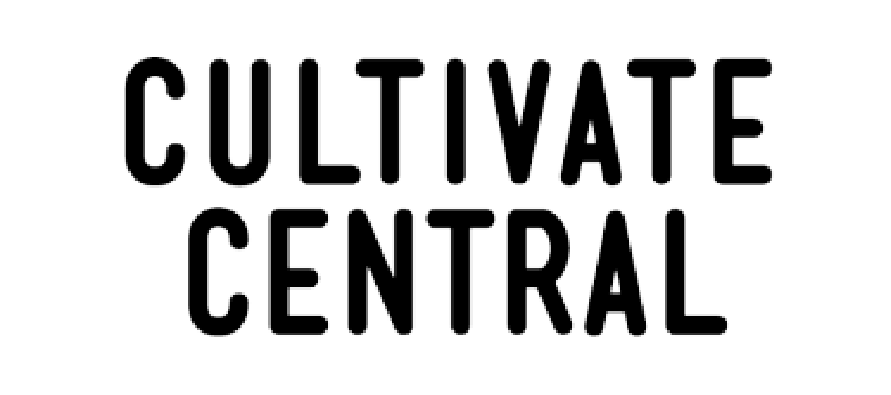
- Dec 20, 2024
- Nova Nelson
Cultivating Change #7 Mabi David Good Food Community Philippines
In this special episode of Cultivating Change, Mabi David, Advocacy and Partnerships Lead at Good Food Community, shares about their experiences running a Community Supported Agriculture system in Metro-Manila, a city of nearly 15 million people. Good Food Community is an organisation championing Community Supported Agriculture (CSA), bridging urban consumers and agroecological farmers to create a sustainable, equitable food system.
#7: From Consumers to Co-Producers - Building Community Through Agriculture
Mabi says her work is driven by a sense of justice, “It is only right and fair that the farmers who feed us safe food daily have food to eat and decent lives; and a sense of community. The current toxic food system is built on alienation and dispossession, and people-led agroecology challenges this harmful system.”
Mabi begins the episode by tracing the origins of CSA to post-war Japan, where mothers partnered with farmers to secure chemical-free produce, a model known as Teikei. She explains how this approach has evolved in Metro Manila, where Good Food Community supports farmers three to ten hours away by fostering shared risks, rewards, and responsibilities.
The discussion highlights their creative adaptations as part of their CSA model, from seasonal harvest subscriptions to solidarity shares for urban poor communities and the establishment of community kitchens during the pandemic. Mabi also speaks passionately about the cultural significance of diverse, agroecologically grown crops, consumer education, and collective actions like farm trips, tree walks, and advocacy for food sovereignty.
This episode is for anyone passionate about sustainable agriculture, agroecology, and community-driven food systems.
Show notes
[00:02:00] The Origins of Community Supported Agriculture (CSA)
Mabi David discusses the post-World War II roots of CSA in Japan.
Mothers partnered with farmers under the Teikei model to access chemical-free produce while supporting local agriculture.
She explores how this collaborative spirit has been adapted for urban settings like Metro Manila in the Philippines.
[00:04:00] How CSA Works in Metro Manila
Good Food Community’s CSA model bridges the gap between urban consumers and smallholder farmers located three to ten hours away.
Key elements include:
- Advance payments from consumers, ensuring farmers a stable income.
- Weekly deliveries of diverse, seasonal, and culturally significant crops.
- Advocacy for agroecology and biodiversity preservation.
[00:06:00] Solidarity Shares and Community Kitchens
The pandemic sparked initiatives like solidarity shares, where consumers purchased extra produce for urban poor communities.
Community kitchens became hubs for organising educational discussions and advocating for food rights.
[00:08:00] Rebuilding Relationships Through Food
Mabi emphasises CSA’s role in cultivating relationships between farmers and consumers.
Activities include:
- Farm visits where subscribers meet farmers and learn about sustainable practices.
- Workshops on home cooking and food processing to restore cooking skills and promote fresh, local produce.
[00:10:00] Advocacy and Cultural Connections
Educational events like the Gulay Pamor Festival connect consumers with the importance of indigenous crops and agroecology.
Collective actions, including tree walks and solidarity bike rides, link food sovereignty with urban sustainability and biodiversity awareness.
[00:12:00] Expanding CSA’s Reach
Creative adaptations of CSA support various communities, from urban poor initiatives to collective gardening projects.
Mabi highlights the importance of consumer education to shift identities from passive consumers to active co-producers.
[00:15:00] Challenges and Future Visions
Mabi discusses the need for broader community participation, consumer accountability, and policies supporting sustainable consumption and production.
She envisions food systems rooted in shared values like fairness, diversity, and mutual support.
Additional Resources
1. Learn more about Good Food Community here.2. Explore the history of Teikei here.
3. Access Mabi’s full presentation deck here, which includes a visual of their CSA model and pictures of their community.
Special thanks to Pesticide Action Network Asia-Pacific (PANAP) for allowing us to sit in on their Farmer-Scientist Conference on Agroecology. And special thanks to Mabi David and Good Food Community for their visionary work in strengthening farmer-consumer relationships and championing sustainable agriculture.
Senior producer: Nova Nelson.
Executive Producer, researcher & host: Tamanna Patel.
Follow us on Instagram
Visit us at Cultivate Central
About Cultivating Change
Cultivating Change is a podcast about people and communities shaping local regenerative food and agricultural systems in Southeast Asia.
We speak to farmers, smallholders and urban growers, food producers, researchers, environmentalists, entrepreneurs and various individuals that are re-imagining, designing and creating healthier more sustainable food futures and landscapes from the ground up.
Our mission? To explore questions and find answers about the vital aspects of our food system, why it matters to your well-being, and the seismic impact it has on the environment in Southeast Asia. It's not just a podcast; it's a recipe for change.

Nova Nelson
Nova Nelson is a permaculture practitioner and consultant with over ten years of experience in Singapore and Malaysia. She is the founder of Cultivate Central, where she integrates permaculture, syntropic agroforestry, and community development to shape regenerative urban food systems. Nova leads the Goodman Community Farm, a demonstrative urban permaculture ecosystem connecting people to soil, food, and environmental stewardship. Certified in Sustainable Food Production and Processing from the Cambridge Institute for Sustainability Leadership, she consults on regenerative food initiatives and hosts Cultivating Change, a podcast exploring food systems and regenerative farmers, communities and cultures across Southeast Asia.
How did I find myself doing what I do? Read my story here.
Features
From Community Farming to Community Research
Enter the Goodman Community Farm — a community space for ageing well.Since 2019, Cultivate Central and the Goodman Arts Centre have nurtured...
Cultivating Change EP #12: Discovering Regenerative Farming with the Orang Asli in Malaysia
What does it take to rebuild livelihoods, restore soil, and shift mindsets? EP #12: Discovering Regenerative Farming with the Orang As...
- #COMMUNITIES

